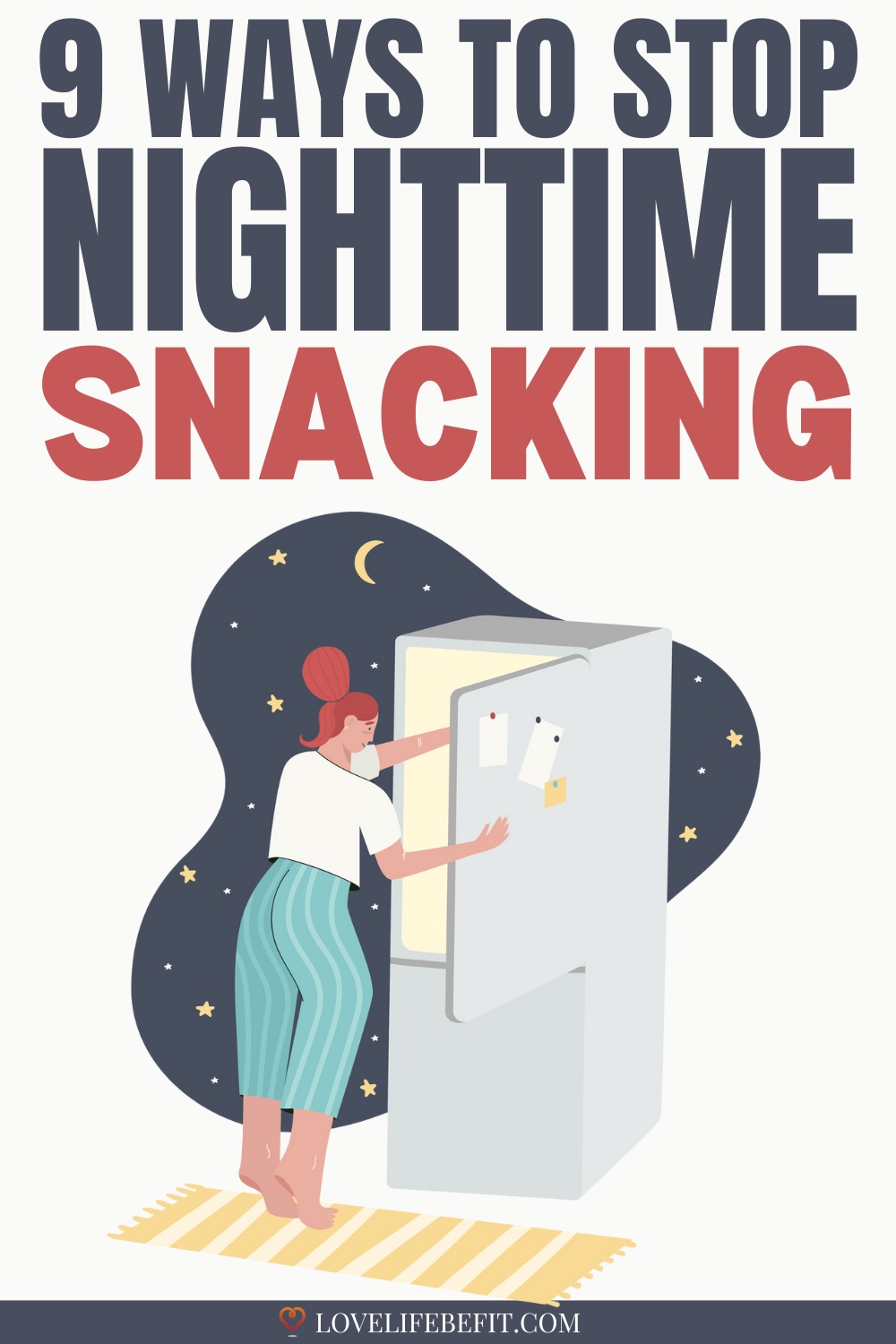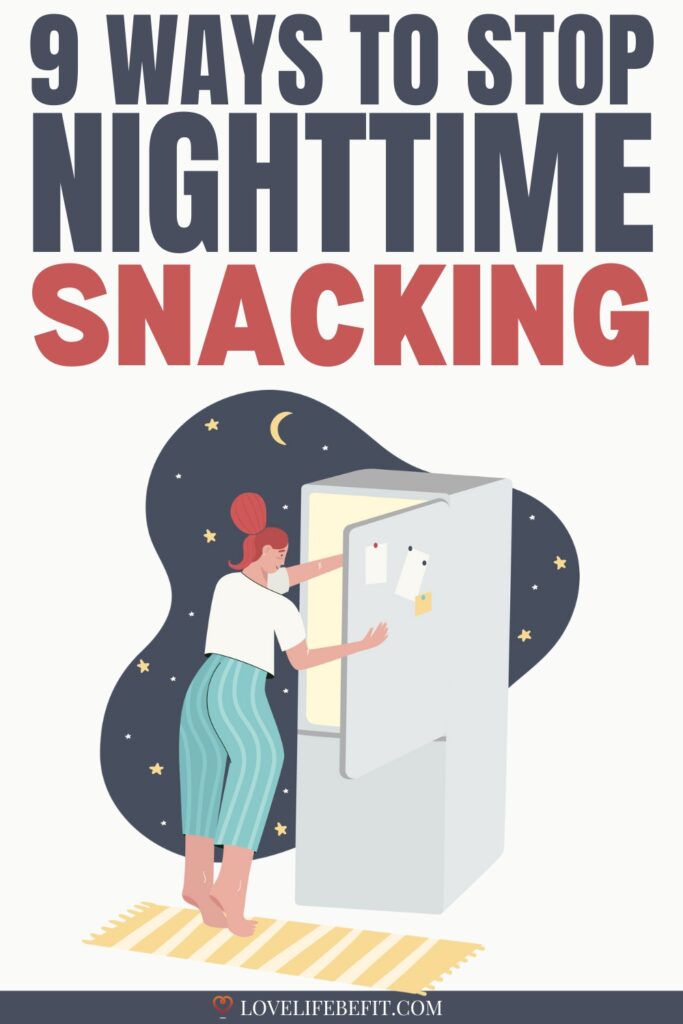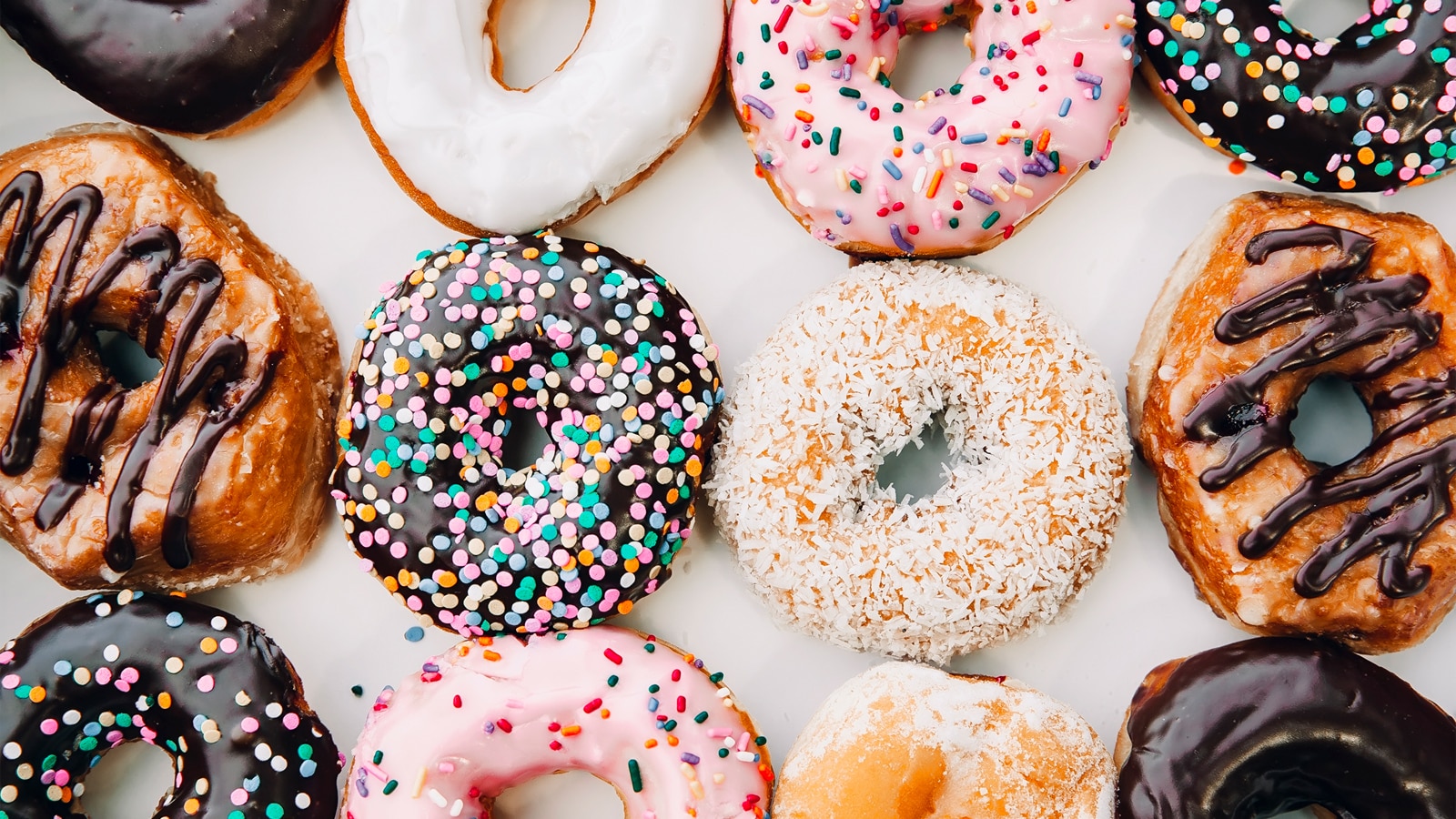9 Tips To Stop Snacking At Night
Do you need to stop snacking at night? Do you fall into a mindless snacking habit when curled up on the couch or get up for a little snack in the middle of the night? If so, it’s time to rein in those bad habits.
Late-night snacking can be bad for your health. It can disrupt sleep patterns, lead to weight gain, and slow down metabolism. Eating healthy snacks can help but if you’re boredom snacking, you’re probably eating extra calories your body doesn’t need.
Your snacking habit could be undoing all the great progress you’re making during the day with your exercise plans and healthy eating. Eating too much is the top reason runners gain weight. No amount of miles or workout sessions will counterbalance late-night snacking on high-fat high-sugar foods.

Why You Can’t Stop Snacking (Identify The Triggers)
It helps to identify the cause of your evening or nighttime snacking
1. You’re Not Eating Enough During The Day
Weight loss is tough. It can be easy to restrict your calories when you’re busy during the day, but at nighttime, your body wakes up to the fact that it’s hungry. Try keeping a food diary for a week or two. If you’re skipping meals during the day, snacking heavily at night, and gaining weight, this could be the reason. Set a more realistic target for your daytime calories and eat regular meals.
2. You’re An Emotional Eater
A bad day at work can be all it takes to lose yourself in a bag of Doritos. Snacking can be a symptom of seeking temporary relief from stress and anxiety. Being self-aware of your emotions is the first step towards curbing your snacking habit.
3. Boredom
If you eat when you’re not hungry, it could be that the cause of your snacking is boredom. It doesn’t help that snacks can be delicious and that high-fat high-sugar combination is addictive. Instead of reaching for your favorite snacks, admit that you’re bored and do something about it!
4. You Could Be Suffering From An Eating Disorder
Binge eating disorder and night eating syndrome are two eating disorders linked to nighttime snacking. These conditions are linked to obesity, depression, and trouble sleeping.
If you eat large amounts of food in one sitting and feel unable to stop eating or you snack during the evening and wake up during the night to eat, seek support from a health professional.

How To Stop Snacking At Night
These tips will help you curb your snacking habit:
1. Stop Skipping Meals
Skipping meals is never the solution if you’re trying to lose weight. If you want to boost your metabolism, you need to eat regular meals. Skipping meals shifts your body into survival mode, slowing your metabolism.
That hunger will also catch up with you. I’m sure we’ve all known days when we’ve gone without food and ended up starving by nightfall. You’ll end up binge eating at night to satisfy your hunger and those nighttime snacks will load up the calories.
2. Clear Out Your Cupboards
Unless you have iron willpower, leaving tempting snacks within arms reach is just asking for trouble. If all it takes is a short walk to the kitchen cupboard to indulge in your favorite high-sugar high-fat snacks, avoiding nighttime snacking is almost impossible.
Clear out your cupboards of all those tempting high-calorie snacks and the next time you go food shopping make sure you eat before you go. It’s much easier when you’re not hungry to fill your trolley with healthy food and ingredients.
3. Destress
If stress is a trigger for your nighttime snacking, try and reduce or eliminate the the cause of your stress. Of course, that’s not always possible, but instead, you can find ways to destress and relax.
Absorb yourself in a good book, run a hot bath, try meditating or yoga. Anything that helps you unwind and put your worries to one side before you go to bed.
4. Change Your Evening Habits
It’s easy to slump on the couch and watch TV when you’re tired in the evenings, but if this habit leads to snacking, it’s time to make some changes.
Could you make better use of your time? Find different ways to spend time with friends and family, or seek out a new hobby that nourishes your mind without the need for food.
5. Plan Some Healthy Snacks
There’s no need to completely stop snacking. Healthy snacks in sensible quantities can be part of a nutritious diet. It’s often better for your energy levels to eat 4 to 6 small meals or healthy snacks a day than 2 or 3 large meals.
Healthy snacks avoid foods that send blood sugar levels soaring and contain protein and fiber to help fill you up. Meal prep healthy snacks in advance and you’ll always have a healthy option when hunger strikes.
6. Brush Your Teeth After A Meal
It’s not completely foolproof but I find that 90% of the time this works. Brush your teeth straight after a meal. When your mouth tastes of minty toothpaste it’s harder to reach for a sugary snack.
Some people also swear by chewing sugar-free gum. I have mixed opinions about this tactic. Chewing gum stimulates saliva which in turn can make you feel hungry. Chewing is a promise of food. When the food doesn’t reach your stomach your brain may feel cheated. I would also be concerned about the health effects of artificial sweetener aspartame used in sugar-free gum.
7. Avoid Alcohol
If you have a bad snacking habit, take a long hard look at your alcohol consumption. Sometimes they’re related. Drinking alcohol reduces inhibitions and also your resolve. It’s a lot harder to avoid the temptation of snacking after a glass or two of wine.
8. Drink More Water But Not Just Before Bedtime
Water is your friend. Your brain will often misinterpret thirst signals and send the message that you need to eat. Making sure you stay hydrated throughout the day could help reduce the amount you eat.
Drink to thirst. It’s dangerous to overdrink so just take a sip of water at regular intervals and if that sip becomes a proper drink it means you’re thirsty.
Watch out for the bad habit of not drinking enough during the day and then drinking too much water (or tea) in the evening. You’ll be getting up in the night to pee and could end up being tempted to start snacking.
9. Improve Your Sleep Habits
Regular bedtimes and getting enough sleep will make it much easier to curb nighttime snacking habits. When you have a good sleep routine, you’re less likely to snack because you’re tired in the evening or wake up in the night and end up nighttime snacking.
Related Post: Self Care Night Routine: 9 Things To Do Before You Go To Bed
Did you find these tips to stop snacking at night helpful? If so, I’d love you to share this post on Pinterest!







